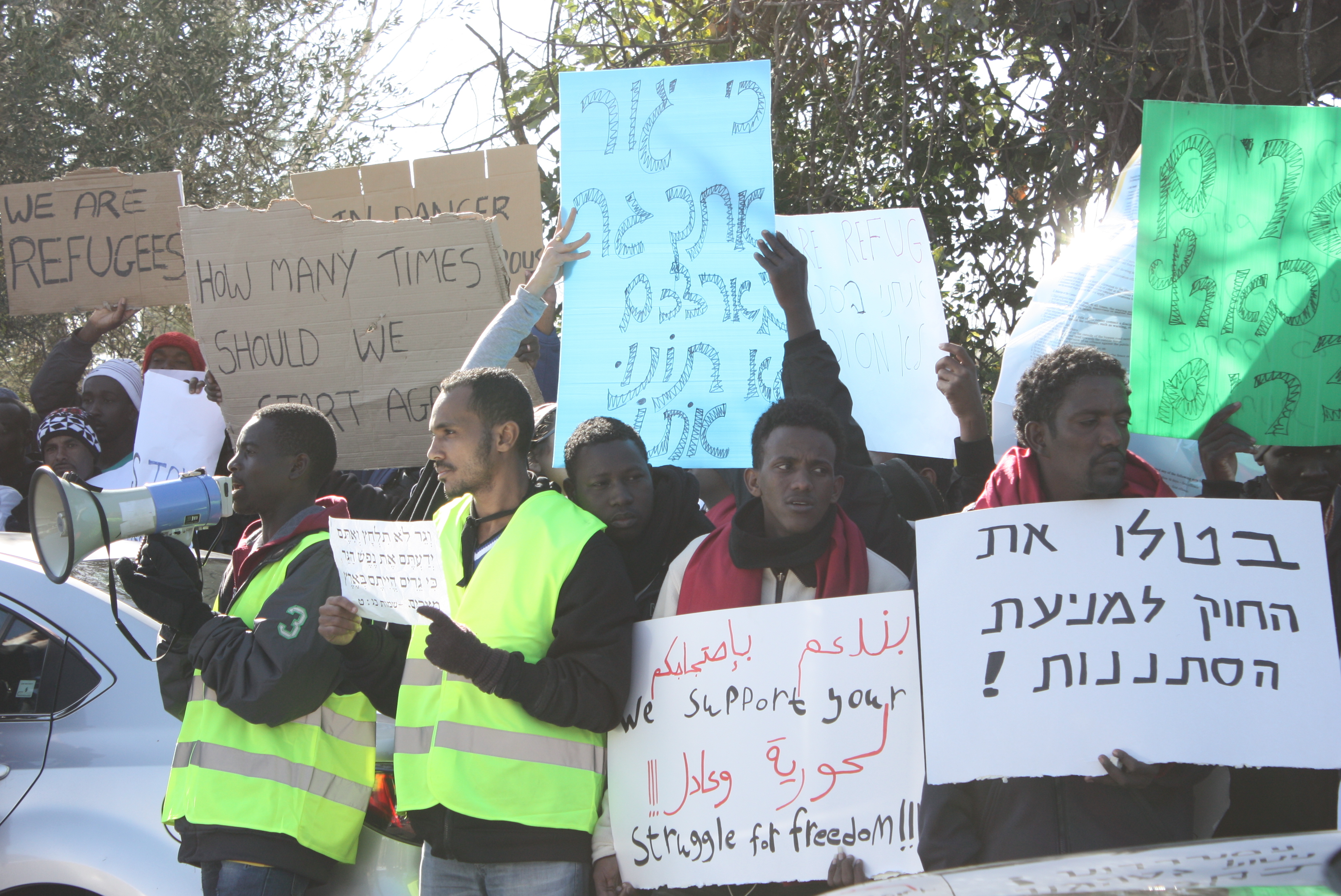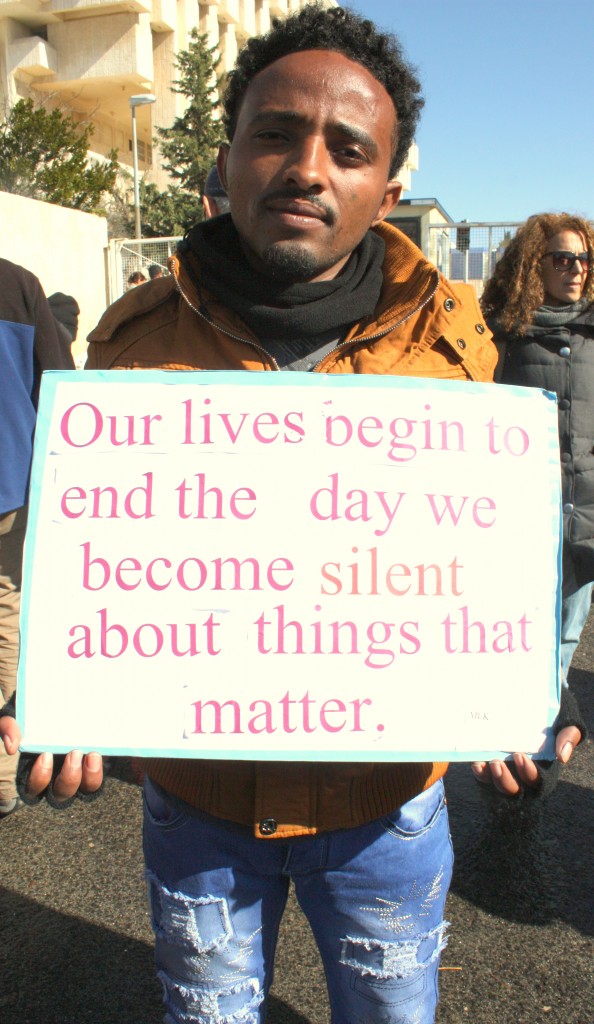My new column is up at The American Prospect:
They simply left.
As soon as they got the chance, the refugees from Darfur and other parts of Sudan and from Eritrea walked out of the guarded camp in the Negev desert and marched north in bitter winter weather toward Jerusalem. There they stood Tuesday afternoon, on an icy sidewalk facing the Knesset, holding up brown cardboard signs with handwritten slogans, chanting in eerily subdued voices halfway between determination and desperation, until they were arrested, manhandled onto buses and sent back to the desert.
This is the condensed version of the refugees’ dramatic three-day protest this week. It is also a condensed version of their lives: They are people—young men, almost all—who made the dangerous decision to leave their countries because staying was even more dangerous. They headed north into Egypt, then crossed the Sinai desert into Israel, hoping for freedom and safety, and were imprisoned as “infiltrators.” But the end of the protest this week is not the end of story. The battle continues—not just between the refugees and immigration authorities, but also between Israeli human rights advocates and a government with contempt for constitutional restraints.
Between 2006 and 2012, over 60,000 people crossed the border from the Sinai into Israel. Almost all had fled from the genocidal war in Darfur, or from elsewhere in Sudan, or from Eritrea, whose totalitarian regime rivals North Korea in cruelty. Early on, a petition signed by a majority of Knesset members, citing “the Jewish people’s history,” pushed Ehud Olmert’s government to promise citizenship to 500 Darfuris. Afterward, the number of people crossing the Sinai desert rose, and the political tide shifted. Successive governments have steadfastly mislabeled the Sudanese and Eritreans as illegal immigrants coming for jobs. The Interior Ministry has evaded checking whether they qualify for asylum under the 1951 international convention on refugees that Israel and Jewish organizations helped write. A handful of politicians have followed the vicious example of the European far right, trying to build their careers by fanning tensions between refugees and working-class Israelis. Israel is painfully normal in this regard: In Western countries, obligations to the refugees are often overwhelmed by fear of hordes crossing open borders. For an Israeli—let me be specific, for this Israeli—what matters is that the obtuse politicians and the rabble-rousers are our own, and what stands out is the particular fury of their opponents, fury fueled by Jews’ memory of being refugees without refuge.
In January 2012, the Knesset passed a draconian government-backed law, under which “infiltrators” (read: refugees) crossing the border could be detained for three years without trial in a camp (read: prison) in southern Israel. In an act of collective cowardice, most members of parliament skipped the vote. …
Read the rest here.







